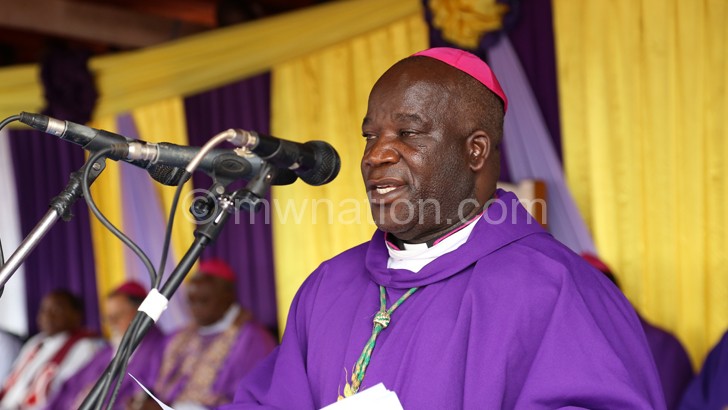Bishops speak on food crisis
The Episcopal Conference of Malawi (ECM) has expressed concern over food shortages in the country, saying to think that 40 percent of the population is unable to meet their food requirements is worrisome.
ECM, a body that comprises bishops of the Catholic Church in the country, says it is in solidarity with the affected population and keeps them in their prayers.

In a statement on food insecurity crisis in the country released yesterday, ECM commended President Peter Mutharika for declaring Malawi a State of National Disaster.
They also supported the President in calling for support from stakeholders, saying the current food insecurity situation requires concerted efforts from various stakeholders.
“The current historic hunger threatens the life of many Malawians. Our hospitals are already reporting higher rates of malnutrition cases and the situation is feared to worsen as we approach what we normally call the lean period. The situation requires immediate and long-term solutions,” reads part of the statement signed by ECM chairperson Archbishop Thomas Msusa of the Archdiocese of Blantyre.
The bishops have also called for reforms in the agriculture sector, as agriculture is the country’s economic mainstay.
“Agriculture infrastructure is dilapidated, water harvesting mechanism for irrigation is not prioritised, agriculture extension services delivery have gone down and food security strategies such as the Green Belt Initiative are still limping yet provides a glaring hope to food security,” reads the statement.
In April this year the President declared Malawi a State of National Disaster after prolonged dry spells during the 2015/16 season.
Recently, the Ministry of Finance, Economic Planning and Development put the number of people in need of total humanitarian assistance at seven million of the projected 8.4 million facing food shortage.
According to the ministry, the total humanitarian food assistance is estimated at the equivalent of 493 000 metric tonnes of maize, with an estimated cash value of K148 billion to ensure that the affected people survive up to the next harvest period without disrupting their socio-economic livelihoods.





